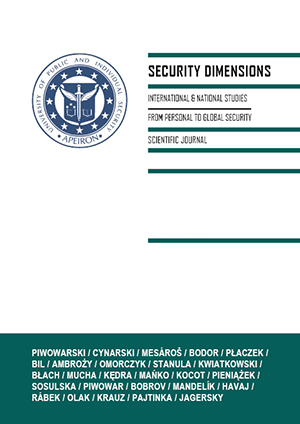Sport e politica nelle relazioni internazionali dell'Europa centro-orientale
SPORT AND POLICY IN INTERNATIONAL RELATIONS OF EUROPE CENTRAL AND EASTERN
Author(s): Stefan BielańskiSubject(s): Security and defense
Published by: Wyższa Szkoła Bezpieczeństwa Publicznego i Indywidualnego “Apeiron” w Krakowie
Keywords: Sport;totalitarian regimes;geopolitics;international relations;
Summary/Abstract: Article discusses three basic issues: 1. Relationship between Sport and Politics during “the Cold War”; 2. Sport and Politics in Central and Eastern Europe during the fall of Soviet communism; 3. Sport and Politics in the context of changes in International Relations at the beginning of the XXIst century. During the „Cold War” – what has meant Soviet domination over Central and Eastern Europe – the sport was regarded by the communist regimes as an important factor of politics therefore its role was ambivalent: on the one hand it was a key element of propaganda, on the other one, it became a “niche of freedom” and resistance against totalitarian regimes in Eastern Europe. Ironically, after 1989, sport in this part of Europe has become a “victim” of socio-political transformation, in particular, such statement refers both to the professional sport as well as to the issue of mass sport. The situation has changed as a result of European Union's enlargement in 2004, and emergence of a new market that was ready to perform the tasks related to the organization of major sporting events. In this context – not only socio-economic but also geopolitical one – we should understand why Poland and Ukraine organized UEFA European Football Championship in 2012. It should be also recognized that the sport – as result of activities of organizations such as the IOC, FIFA, UEFA – has reached a significant role in the overall International Relations in Europe and the world.
Journal: Security Dimensions. International and National Studies
- Issue Year: 2014
- Issue No: 11
- Page Range: 202-208
- Page Count: 7
- Language: Italian

